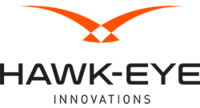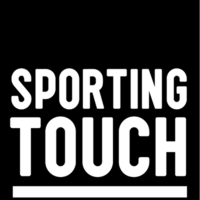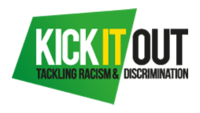I was born with a condition called Cerebral Palsy which, for me, means I have limited mobility with the left side of my body weaker than the right and I need the use of an electric wheelchair to get around independently.
From a young age I loved sport, especially football. Every weekend I would watch matches from the Premier League with my dad and I would keep a close eye on all the results from the different teams. This was where I first came across the role of a referee. I thought ‘I could do that’ so began to research how to become one, discovering the FA refereeing course. Unfortunately, I wasn’t old enough at the time to participate (you had to be 14) but I began to referee games of football for my friends during break times at school, which I loved. I spoke to the PE department about my hopes of becoming a referee and they asked me to officiate games during some of my PE lessons to get used to refereeing.
Having taken the opportunity to give refereeing a try, I was determined to become a qualified football referee so in September 2012 I began a sports course at the National Star College in Cheltenham, a specialist college for students with disabilities. A year later I contacted the head of the Sports department and told him about my dreams of becoming a referee. We spoke about the potential difficulties of refereeing 11 a side games but decided to contact the Gloucestershire Football Association to see if they thought it would be possible for me to partake in the FA refereeing course and become a referee, despite having Cerebral Palsy. A few days later we heard that I had been accepted onto the course - I was delighted!
In March 2013 I was lucky enough to be able to do the qualification at college with the Referee Development Offer at the time, former Premier League Referee, Steve Tanner. The day was great and I learned a lot. After doing the day course I was told that I was qualified to referee ‘Mini Soccer’ matches, which are 5-9 aside. I was thrilled to have achieved one of my dreams!
After a few weeks, Steve advised me I could officiate in the Gloucestershire FA’s Ability Counts League, a league for people who are able-bodied but also have a disability. It runs once a month in Cheltenham (where I officiate) and once a month in Bristol, from October to May. 3 matches take place at the same time and I normally share a pitch with another official so we can alternate refereeing matches. This means I can sometimes referee around 7-8 matches per day.
My first taste of officiating in the Ability Counts League as fully qualified Match Official was in early 2014, I was a little hesitant at first because I was unsure how the players, managers/coaches and fans would react to a referee in a wheelchair, to my amazement I had no problems at all as they were pleased to see someone with disability getting involved with a sport they love. The games went well and I thoroughly enjoyed the experience of officiating the tournament, which I now regularly referee and I have been doing for about 5 years now.
I am grateful for the ongoing support I have received through the Gloucestershire FA as well as through my local Referee Association in Gloucester. They have both given me advice throughout the season.
I now look forward to seeing what the next few seasons have in store for me and I cannot wait!
What would I like to do in the future? Well, I would love to continue to referee as much as I possibly can and perhaps referee in different leagues, so I can make more progress as a match official it’s been a roller-coaster of a ride so far and I’m so glad I decided to become a referee as I’ve met some great people who will be friends for years to come.
If you have a story to share, please get in touch via media@the-ra.org





















